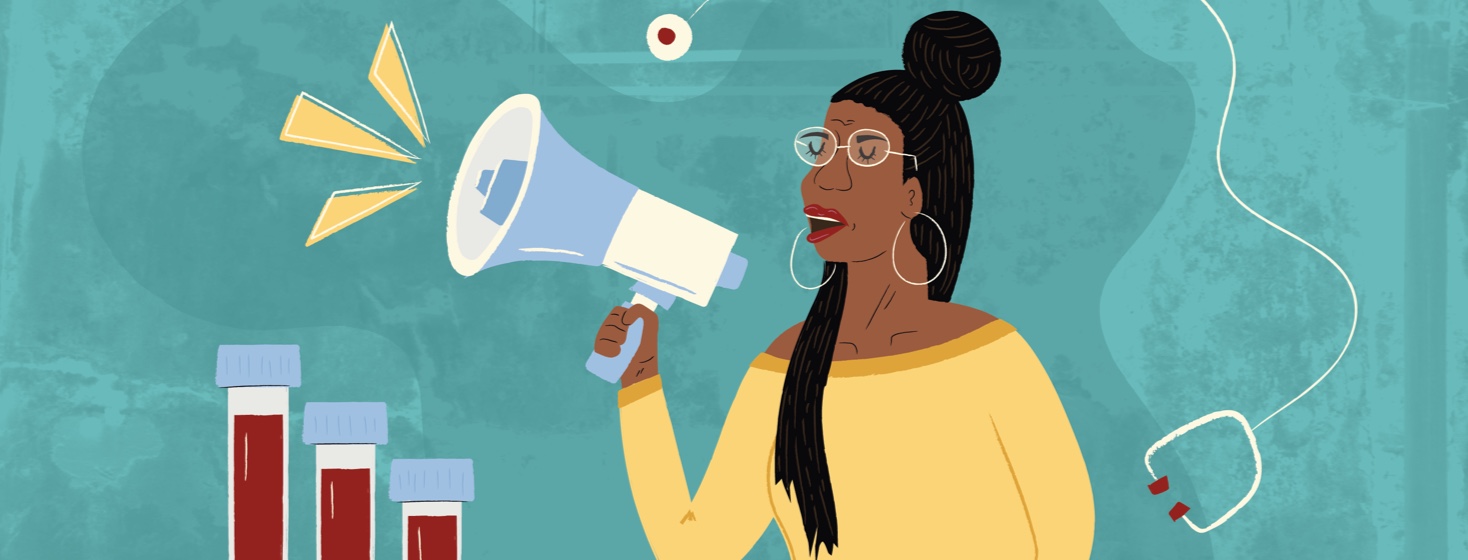Living with Multiple Myeloma as an African American Woman
Is race an important factor in getting the proper treatment needed to fight blood cancer? Unfortunately, I would have to say yes, it is. Dealing with blood cancer, in general, comes with a lot of stress while getting a grip on the process. What I mean by this is there may have been changes you noticed in your body that led you to where you are today. Whether it was feeling fatigued, stricken with bone pain, losing weight, headaches, or whatever comes along with not feeling well. So what happens next? You go to the doctor, and you may or may not get the correct diagnosis at the right time. There may be some who automatically are sent home because the doctors are not familiar with your particular symptoms or because you don’t fit the prototype for that diagnosis.
The importance of an early diagnosis
Well, what happens when you do fit the prototype, you receive a diagnosis, yet you're still not diagnosed early enough to utilize all of your options? Well, that’s a problem and this is where self-advocacy comes into play. As an African American woman, I can say it’s been a battle being outspoken during my health journey. If something doesn’t make sense or the medical staff doesn’t sync with my spirit, then I have to bounce and seek other means- but that’s me, and I realize everyone may not be as forceful as I can be. Many people I’ve met admit to following their doctor's orders with no questions asked. However, sometimes the questions have to be asked when you have blood cancer, as time can be a major factor in recovery.
I mention race because Black people are at a greater risk of being diagnosed with multiple myeloma, and many may have multiple myeloma right now, and not know they have it, because they are not tested early enough to defeat the disease.1 So, how is this plight different from others? Well, myeloma specifically affects and has a higher death incidence for those of color (if not treated in time), more so than those not of color.1 I feel it’s very important to see the various shades of the disease because many people are not getting the treatment they need early enough to try and beat this because they don’t fit the standard description of the disease. I find that hard to swallow as Black people are more so affected with this disease and most have no clue until they are hit hard.
Get a second opinion if something feels wrong
This year I’ve made my rounds talking and writing about racial disparities when it comes to blood cancer. It’s so important for me to be vocal about this as it is disheartening seeing the comments on my social media feeds of the many people who had family members that have died from this disease. For the most part, we’re still clueless in how we got this cancer, but it makes you rub your head even more when it seems like a group of people that are highly affected, are still not being treated early enough.
We think: A pain is a pain, so it’s nothing, or that cracking joint pain is just age, but after a while, we have to question things, when we want solid answers. Although all pains don’t mean cancer, if there’s a trend of specific ailments, I would think a competent team can direct you to the correct sources to delve deeper. As I mentioned, I understand many people go by what they are told, but we have to do better to get better results. Trust in numbers may not just be one doctor giving you answers to what your body is going through; it may take a few faces to discuss what is happening.
We can't be late to the party
I was fortunate that my primary care doctor picked up some high variances in my protein, which led me to a myeloma diagnosis. I must say, he didn’t know it was myeloma, but he picked up and alerted me to seek other options in delving deeper. As I delved deeper with tests and specialists, then it was divulged as multiple myeloma. I’m forever thankful to this doctor for at least alerting and actually following up and pushing me to see what was happening. Many doctors don’t do that; some do, but again some don’t.
It’s that old mantra no news is good news, or the doctor says I’m okay, even though I’m still feeling lousy. We can’t always be late to the party of knowing, and though these words can be universal for everyone, specifically I stress for people of color because earlier diagnoses can save lives. The chance for maintaining and surviving this is more hopeful than it may have been 10 years ago. When we’re late to the party or not invited, we miss out on getting what we need in time; so I state this but also realizing it also depends on who is treating, respecting, and understanding you to direct you earlier enough that is essential.
The old thought of not picking up and alerting the patient has to stop. We can’t go back in a time of how history, which has done a disservice for many people of color in medical analyses; our voices have a right to be heard at these doctor offices, as our life depends on it.
The time to fight is now, with integrity, grace, hope, and a smile….when you feel like it

Join the conversation